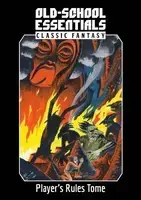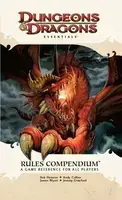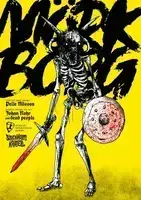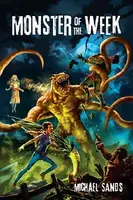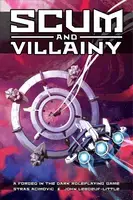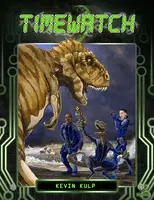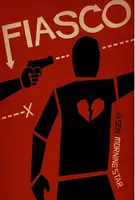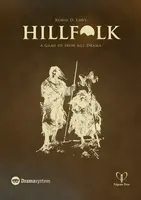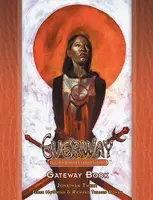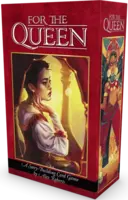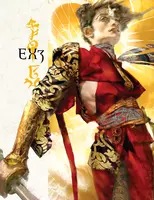Must have RPGs
published
What are the must-own RPGs for a true collector?
Go quality, not quantity. Not just #DnD. Not just #OSR. Trad. Indie. GMless.
What should every "proper" collection include?
And while I made my response on Twitter, I thought this worthy of an answer in a longer form.
Different games are good at different things. They focus on different elements of story, on different levels of complexity. Some steer closer to boardgames or wargames that others. Some give one player (a GM/DM/etc) different responsibilities to other players. Some use lots of dice, some use none.
Reading and playing a wide range of games gives you a better idea about what experiences are available and each kind of experience brings with it lessons that can feed into other styles of games to make them richer.
So, onto my list, which attempts to cover a broad range of styles rather than simply being my favourites.
Dungeons & Dragons
Where it all began.
There have been lots of editions of D&D over the years, and even more clones of it. Old School Essentials is my OSR game of choice. It does a great job at the old school game of resource management and rewarding careful players while being written in a more accessible fashion than the game it clones.
At the other end of the spectrum is 4th edition absolutely nailed the "going into dungeons and heroically beating up monsters" style of gaming with interesting combat and monster design that really helped the GM.
Meanwhile Mörk Borg is made of pure metal. It's the only game on this list that I haven't played, but it drips with style (the style being made up with rusty metal teeth) and reading material for it always gets my creative juices going.
Powered by the Apocalypse
A major part of the newer breed of games, the PbtA formula is highly hackable and easy to run (at least when you get your head around it). There are lots of PbtA games I could recommend but I limited myself to two.
Monster of the Week is one of the most accessible implementations of the format. It has a straightforward theme familiar to anyone who has watched Supernatural, Buffy or Scooby Doo and doesn't have any mechanics which might be off-putting. It took me some months (and some reading about the purpose behind them) before I game around to playing a game with Sex Moves like Apocalypse World or…
Monsterhearts which deals with the messy, angsty lives of teenage monsters. It's a game which, much more than most, needs players to be comfortable with the idea that having their characters make really dumb decisions and then suffering the consequences can be fun.
Scum and Villainy is Forged in the Dark, so it isn't PbtA but has some of that format's DNA. It takes the concepts of Blades in the Dark — which strips PBtA back to its essence and then builds out in new and interesting directions — transplants it to a sci-fi setting that is good for Star Wars, Firefly or Killjoys games, and presents it in a clearer format than its parent game.
Adaptable Games
I hesitate to use the term 'generic' because it sounds like weak sauce, so "Adaptable".
Savage Worlds is the trad game in this category. It likes it when you use miniatures, the combat section of the rules is pretty large, and it is pretty straightforward.
Fate swings in the different direction and, while supporting plenty of action, encourages a lot more focus on character. The aspect rules mean that playing to character traits gives you an advantage. I also find aspects useful as a guide to how a character should act, so most of the time if I'm designing an NPC (in any system) I will start by jotting down their Fate aspects.
Games without…
When you remove something often considered intrinsic to an RPG you can end up with a very different experience. All of these games remove something, or a couple of somethings.
Timewatch is my choice from the GUMSHOE system. It largely removes randomisation. The focus of the game is on investigation and the system is designed on the premise that a bad dice roll should never stop the players getting a clue. If you have a skill that could be used to find a clue and you decide to use that skill, then you succeed. It does keep some degree of randomisation in for non-investigative activities, such as fighting, but even then you can usually spend points to guarantee a success on the dice.
Fiasco somehow got left off my original list. It runs without a GM and the only randomisation mechanic is used to determine a pool of plot elements (character needs, relationships, items, and locations). Rules determine who gets to describe what the next scene is about and who gets to determine if the outcome is good or bad for the spotlight character.
Hillfolk is the title under which Dramasystem was published. It has a fair amount in common with Fiasco, in that you have spotlight scenes and a focus on the interactions between the set of player characters.
It has even less randomisation that Fiasco, with character creation being far more open. It does add a GM back in, with a responsibility push the story in interesting directions and to handle any NPCs that might be called into a scene.
Dramasystem shifts the goal of scene from "Was it good or bad for the character" to "Did characters get what they wanted?" with a meta currency (drama points) being passed around to pay for fulfilled desires but which (in greater quantities) can force a play to concede something.
Everway (which has a fresh new edition just landed in PDF and going to print soon) is a more classic diceless RPG where success is measured by comparing fixed numbers and interpreting images when that fails. I've only played it briefly, and that was quite a few years ago, but I'm looking forward to getting to grips with it properly through the new edition.
For the Queen is, perhaps, the ultimate expression of "without" — no GM, no dice, no up front character creation — it consists of a series of questions on cards. Players, who are character accompanying the Queen on a journey, take it in turns to draw a card and answer the question. From this character is developed. It it simple but elegant.
A massive game
There are a few massive games out there, but my choice is Exalted. It has a setting containing all things fantasy and focuses on truly mighty heroes. A single starting character should be able to deal with Argonauts undead opponents without even breaking a sweat.
It lets you roll buckets of dice, fight gods, pull off ridiculous stunts, save the world, and then have to deal with the consequences.
The core book is huge, but contains a wealth of setting information and a lot of its page count is dedicated to charms (special abilities that characters can have) which you only need to considered when building and levelling your character (and even then you can focus on the areas that are of interest to your character).
As I write this, the Kickstarter for Exalted: Essence has just finished. It aims to produce the core experience of Exalted in a lighter and more accessible format, similar to how Shadowrun: Anarchy compares with its parent game. I've been reading the draft version and plan to use it to introduce some more players to Exalted (just as soon as I've run a the Deadlands game I mentioned earlier!).
